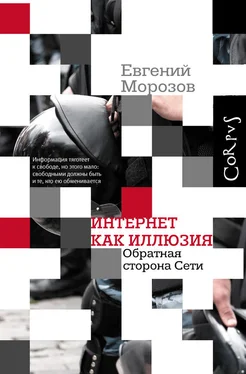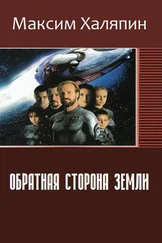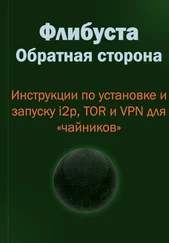Walby, S. The Myth of the Nation-State: Theorizing Society and Polities in a Global Era // Sociology 37, no. 3 (2003): 529.
Warf, B., and J. Grimes Counterhegemonic Discourses and the In-ternet // Geographical Review 87, no. 2 (1997): 259–274.
Warren, M. E. Social Capital and Corruption . Presentation at Social Capital: Interdisciplinary Perspectives , EURESCO Conference on Social Capital, September 15–20, 2001.
Watts, J. Old Suspicions Magnified Mistrust into Ethnic Riots in Urumqi // Guardian, July 10, 2009.
Weiss, L. Globalization and National Governance: Antinomy or Interdependence? // Review of International Studies 25 (1999): 59–88.
Weiss, L. Globalization and the Myth of the Powerless State // New Left Review 225 (1997): 3–27.
Weiss, L. The Myth of the Powerless State . Ithaca, NY: Cornell Univer-sity Press, 1998.
Zuev, D. The Movement Against Illegal Immigration: Analysis of the Central Node in the Russian Extreme-Right Movement // Nations and Nationalism 16, no. 2 (2010): 261–284.
Глава 10. История – это не только меню браузера
Achterhuis, H., ed. American Philosophy of Technology: The Em-pirical Turn . Bloomington: Indiana University Press, 2001.
Adas, M. Machines as the Measure of Men: Science, Technology, and
Ideologies of Western Dominance . Ithaca, NY: Cornell University Press, 1990.
Alexander, J. The Sacred and Profane Information Machine: Dis-course About the Computer as Ideology // Archives de sciences so-ciales des religions 35, no. 69 (1990): 161–171.
Alvarez, M. R. Modern Technology and Technological Determinism:
The Empire Strikes Again // Bulletin of Science, Technology & So-ciety 19, no. 5 (1999): 403.
Armitage, J. Resisting the Neoliberal Discourse of Technology: The Po-litics of Cyberculture in the Age of the Virtual Class // CTHEORY 1 (1999).
Balabanian, N. On the Presumed Neutrality of Technology // IEEE
Technology and Society Magazine 25, no. 4 (2006): 15–25. Barbrook, R., and A. Cameron The Californian Ideology // Science as Culture 6, no. 1 (1996): 44–72.
Barley, S. R. What Can We Learn from the History of Technology? //
Journal of Engineering and Technology Management 15, no. 4 (1998): 237–255.
Behringer, W. Introduction: Communication in Historiography //
German History 24, no. 3 (2006): 325.
Beniger, J. R. Control Revolution: Technological and Economic Ori-gins of the Information Society . Cambridge, MA: Harvard University Press, 1989.
Bijker, W. E., Hughes, T. P., and T. J. Pinch, eds. The So-cial Construction of Technological Systems: New Directions in the Sociology and History of Technology . Cambridge, MA: MIT Press, 1989.
Bimber, B. Karl Marx and the Three Faces of Technological Determi-nism // Social Studies of Science (1990): 333–351.
Blondheim, M. News over the Wires: The Telegraph and the Flow of Public Information in America, 1844–1897. Cambridge, MA: Harvard University Press, 1994.
Boccaccio, G. The Decameron , Vol. 1. New York: Modern Library, 1955.
Boorstin, D. J. The Republic of Technology . New York: HarperCol-lins, 1979.
Briggs, A., and P. Burke A Social History of the Media: From
Gutenberg to the Internet . 2nd ed. Malden, MA: Polity, 2005. Cardwell, D. Wheels, Clocks, and Rockets: A History of Technology .
New York: W. W. Norton, 1995.
Carey, J., and J. J. Quirk The Mythos of the Electronic Revolution // American Scholar 39, no. 1 (1970).
Carnes, M. C. The Columbia History of Post-World War II America . New York: Columbia University Press, 2007.
Ceruzzi, P. E. Moore’s Law and Technological Determinism // Tech-nology and Culture 46, no. 3 (2005): 584–593.
Comor, E. Harold Innis and “the Bias of Communication” // Infor-mation, Communication and Society 4, no. 2 (2001): 274–294. Corn, J. J. The Winged Gospel: America’s Romance with Aviation .
Baltimore: Johns Hopkins University Press, 2002.
Cortada, J. W. Do We Live in the Information Age? Insights from His-toriographical Methods // Historical Methods: A Journal of Quan-titative and Interdisciplinary History 40, no. 3 (2007): 107–116.
Cowan, R. S. More Work for Mother: The Ironies of Household Tech-nology from the Open Hearth to the Microwave . New York: Basic Books, 1983.
Craig, D. B. Fireside Politics: Radio and Political Culture in the United States, 1920–1940. Baltimore: Johns Hopkins University Press, 2005.
Czitrom, D. J. Media and the American Mind: From Morse to McLuhan . Chapel Hill: University of North Carolina Press, 1982.
David, P. A. The Dynamo and the Computer: An Historical Perspec-tive on the Modern Productivity Paradox // American Economic Review 80, no. 2 (1990): 355–361.
de la PeÑa, C. “Slow and Low Progress”, or Why American Studies Should Do Technology // American Quarterly 58 (2006): 915–941.
de la PeÑa, C., and S. Vaidhyanathan, eds. Rewiring the “Nation”: The Place of Technology in American Studies . Baltimore: Johns Hopkins University Press, 2007.
Diamond, L. Liberation Technology // Journal of Democracy 21, no. 3 (2010): 69–83.
Douglas, S. J. Inventing American Broadcasting, 1899–1922. Baltimore: Johns Hopkins University Press, 1987.
Douglas, S. J. Listening In: Radio and the American Imagination . Minneapolis: University of Minnesota Press, 2004.
Douglas, S. J. The Turn Within: The Irony of Technology in a Globa-lized World // American Quarterly 58, no. 3 (2006): 619–638. Dunlap, O. E., Jr. The Outlook for Television . New York: Harper &
Brothers, 1932.
Durbin, P. T. Technology and Political Philosophy // Technology in Society 6, no. 4 (1984): 315–327.
Elliott, E. D. Against Ludditism: An Essay on the Perils of the (Mis)Use of Historical Analogies in Technology Assessment // Southern California Law Review 65, no. 1 (1991): 279.
Ezrahi, Y., Mendelsohn, E., and H. Segal Technology, Pes-simism, and Postmodernism . Boston: Kluwer Academic, 1994. Feenberg, Andrew Alternative Modernity: The Technical Turn in
Philosophy and Social Theory . Berkeley: University of California Press, 1995.
Feenberg, Andrew Marcuse or Habermas: Two Critiques of Tech-nology // Inquiry 39, no. 1 (1996): 45–70.
Feenberg, Andrew Questioning Technology . New York: Routledge, 1999.
Ferkiss, V. C. Man’s Tools and Man’s Choices: The Confrontation of Technology and Political Science // American Political Science Re-view 67, no. 3 (1973): 973–980.
Ferkiss, V. C. Technology and American Political Thought: The Hid-den Variable and the Coming Crisis // Review of Politics 42, no. 3 (1980): 349–387.
Fischer, Claude S. America Calling: A Social History of the Tele-phone to 1940. Berkeley: University of California Press, 1994. Fischer, E. Contemporary Technology Discourse and the Legitimation of Capitalism // European Journal of Social Theory 13, no. 2
(2010).
Forest, Lee De. Television, Today and Tomorrow . New York: Dial, 1942.
Foster, T. The Rhetoric of Cyberspace: Ideology or Utopia? // Con-temporary Literature 40, no. 1 (1999): 144–160.
Friedel, Robert Douglas A Culture of Improvement: Technology and the Western Millennium . Cambridge, MA: MIT Press, 2007.
Galston, W. A. Does the Internet Strengthen Community? // Natio-nal Civic Review 89, no. 3 (2000): 193–202.
Читать дальше
Конец ознакомительного отрывка
Купить книгу











